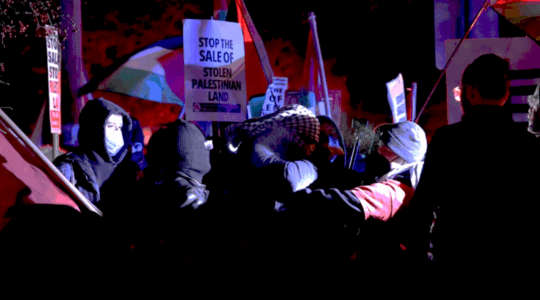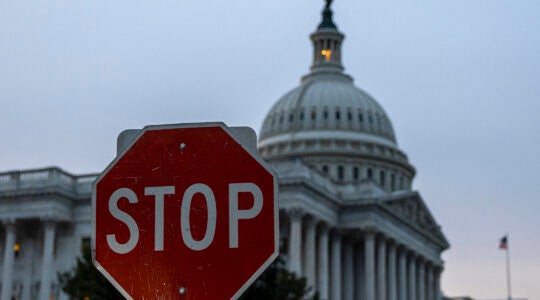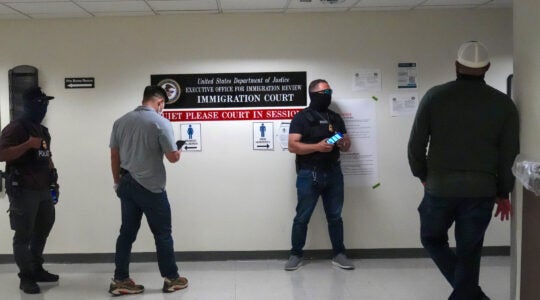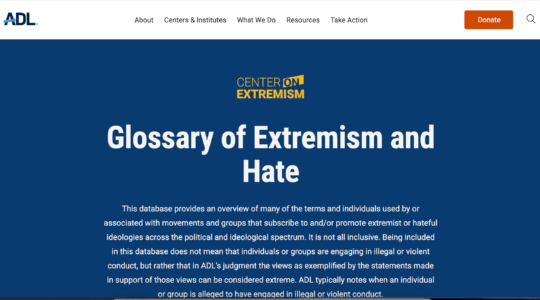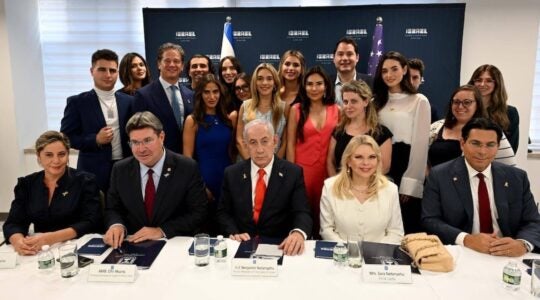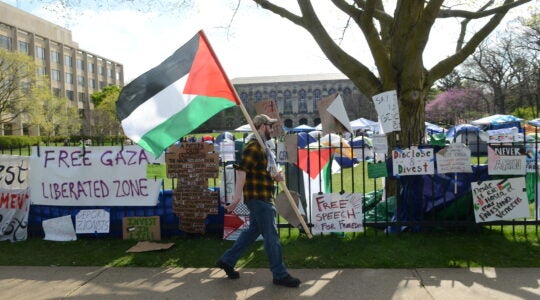NEW YORK (JTA) — A survey of 249 Conservative rabbis finds that almost half have defied the movement’s ban on attending interfaith weddings and that 40 percent would officiate at such weddings if the movement permitted them to do so.
The survey, conducted by the New York-based Big Tent Judaism (formerly named the Jewish Outreach Institute) is believed to be the most comprehensive poll yet of Conservative clergy opinion on intermarriage. However, because the survey was conducted via email with a self-selected group of participants, some Conservative leaders are dismissing its findings.
Rabbi Julie Schonfeld, executive vice president of the movement’s Rabbinical Assembly — which has almost 1,700 members — told Religion News Service the study is “not a very serious study” and that it is “unscientific” and “unrepresentative.”
Among the findings of Big Tent Judaism’s survey: 70 percent of respondents work with at least one intermarried volunteer leader in their congregation, 40 percent have attended interfaith weddings, 40 percent would officiate at intermarriages if permitted to do so and half “feel that some discussion of their movement’s stance on issues related to intermarriage (either officiating at interfaith marriages, recognizing patrilineal descent, and/or admitting intermarried rabbinical candidates) is warranted,” according to the study’s executive summary.
Of the respondents, 77 percent were male and 54 percent were under the age of 50. Sixty-six percent currently work in a pulpit position.
Intermarriage has presented a conundrum for Conservative Judaism, which says it is committed to Jewish law, in recent years, as interfaith relationships have become more common and more accepted among non-Orthodox American Jews. Once America’s largest Jewish denomination, the Conservative movement has lost members to the more liberal Reform movement in recent years, with many theorizing that it is because of the movement’s strict policies on intermarriage.
In particular, Conservative rabbis are barred from officiating at marriages between Jews and non-Jews, and the movement, unlike Reform and Reconstructionism, adheres to the traditional matrilineal descent definition of who is a Jew — thus, a child of a Jewish father and gentile mother is considered Jewish only if he or she undergoes a formal conversion. In a widely flouted policy, the movement bars intermarried Jews from holding leadership positions in synagogues or serving as teachers in their religious schools.
Over the past decade, groups like the movement’s Federation of Jewish Men’s Clubs have pushed for a more lenient approach and have urged Conservative congregations to be more proactive about welcoming interfaith families and acknowledging interfaith unions in their newsletters.
“As an organization tracking the trends of intermarriage for nearly three decades, Big Tent
Judaism (formerly Jewish Outreach Institute) anecdotally understood that changes in
opinion — and even in practice — have already spread among Conservative rabbis,” the study states in its conclusion. “Our goal with this study was to provide a quantitative understanding of the trends, so that Conservative rabbis themselves, through their organizing bodies, can be armed with an additional tool for conversations that a considerable percentage believe should be happening.”
The survey, conducted online over three weeks this summer, recruited respondents through various Conservative movement listservs, along with outreach to a “list of rabbis in Conservative-identified institutions.”
“As with any opt-in survey, it is not possible to determine the degree to which this sample is
statistically representative of the population of Conservative rabbis, or to calculate the margin
of error for this sample,” the study notes. “However, the diversity within this sample suggests that this sample represents a wide swath of the universe of Conservative rabbis.”
JTA has documented Jewish history in real-time for over a century. Keep our journalism strong by joining us in supporting independent, award-winning reporting.
